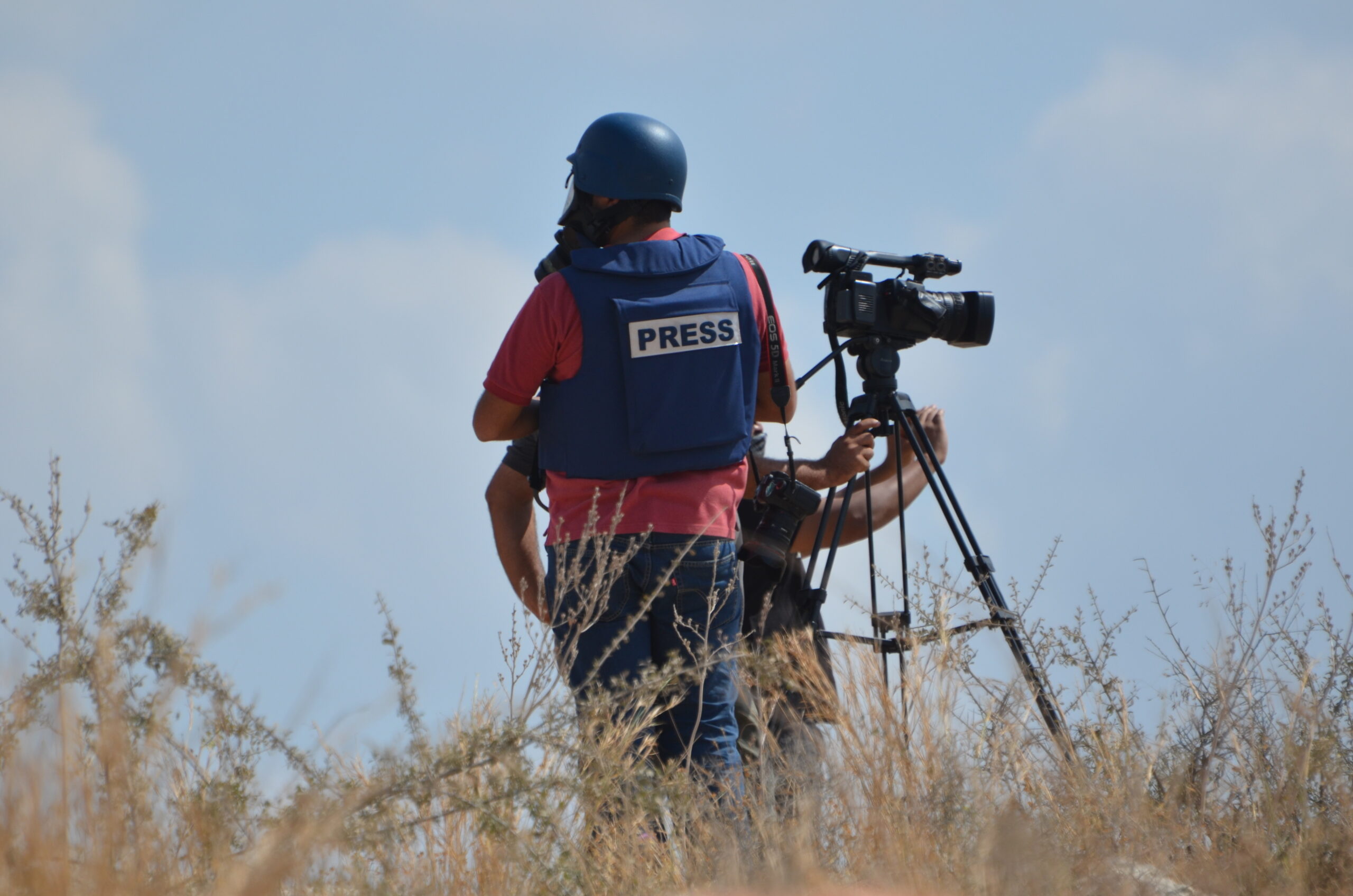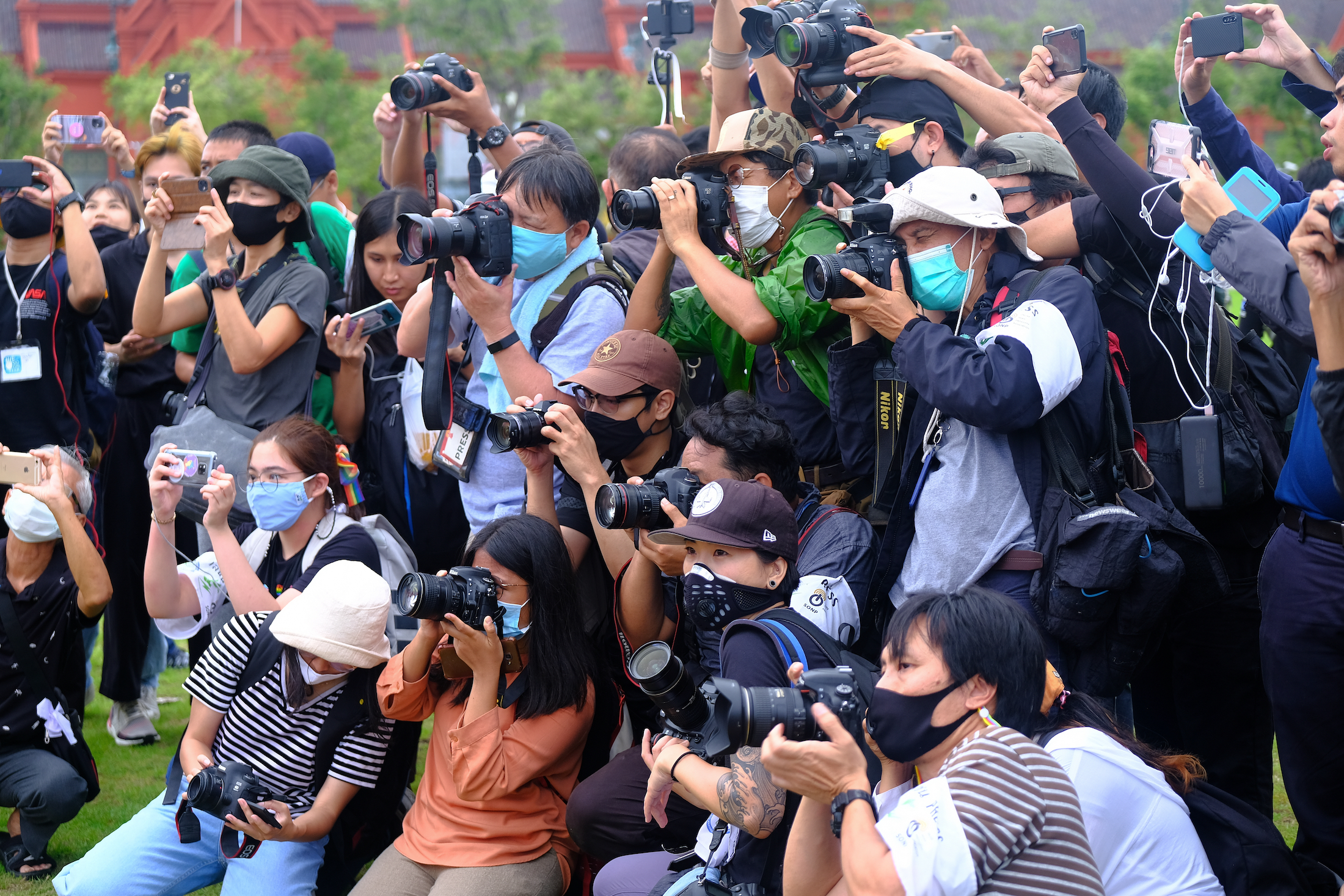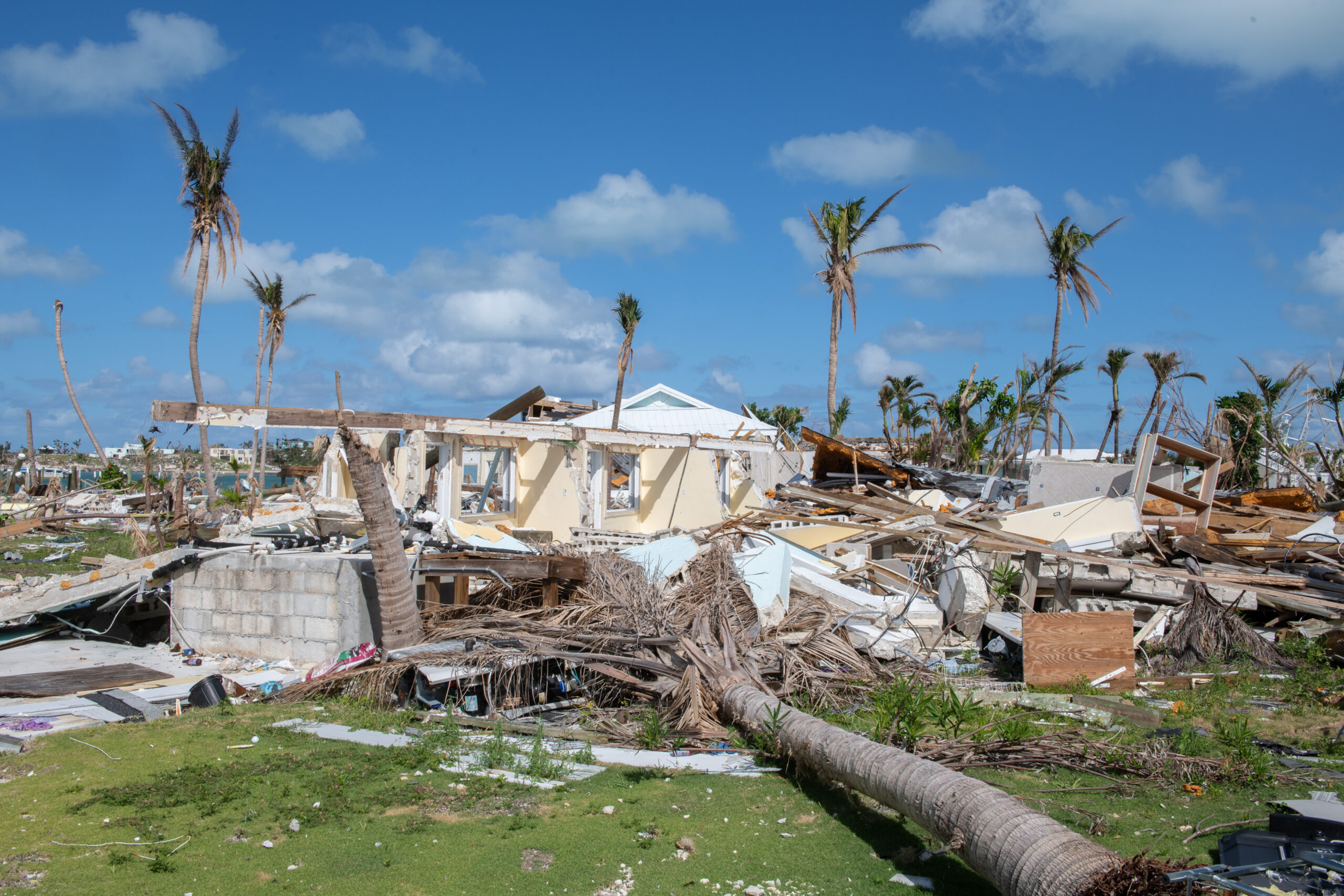STATEMENT
2024 begins as 2023 ended… With journalists under threat
12th January 2024
Last year was one of the worst years for journalists on record, with 79 journalists alone killed in the Israel-Gaza conflict. With other conflicts in Sudan and Ukraine, with a mass of elections happening globally, and an escalation of threats in countries such as Ecuador, the environment for journalists is increasingly hostile.

On the day before New Year’s Eve, with journalists preparing for a third year reporting on the war in Ukraine, a Russian airstrike hit the Kharkiv Palace Hotel.
“There is an incredibly loud thud, the building shakes,” said Alica Jung, a reporter for German public broadcaster ZDF, who was staying in the hotel at the time. “I’m on the fifth floor of the Kharkiv Palace Hotel. When I open my room door, I don’t see the large open lobby – as usual – but darkness and black smoke. I don’t know if my colleagues are still alive or what part of this building is still standing. What I know straight away is that something has happened here and I have to get out somehow and find my team.”
Read more: Why newsrooms need to prioritise journalist safety in 2024
Ms. Jung said at least ten of the rooms in the hotel were being rented out to journalist teams. Fortunately, she and the remainder of her team were safe, although their translator suffered a broken rib and three broken vertebrae.
Sadly, such an incident was an only too fitting conclusion to 2023, a year in which the International Federation of Journalists (IFJ) reported 120 journalists and media workers were killed.
Last year saw the deadliest conflict for journalists since records began in 1992, with the Committee to Protect Journalists (CPJ) reporting that 79 journalists have been killed in the Israel-Gaza conflict since 7 October*.
The threats to journalists in the region have not abated since the new year. On 7 January, two more journalists, Hamza Wael Dahdouh and Moustafa Thuraya, were killed by Israeli strikes. The killings led Reporters Without Borders (RSF) to call on the United Nations Security Council to hold an emergency meeting on Resolution 2222 – the requirement for countries to protect journalists during conflicts.
All indications suggest that the twelve months ahead will continue to provide countless challenges and threats to journalists. With an end to either conflict seeming unlikely any time soon, more casualties seem inevitable.
There are also those conflicts which occupy less space in the global media cycle. In Sudan, for example, RSF recently reported that journalists remain at risk from both sides of the civil war, with journalists threatened, beaten, and disappeared. Such risks materialised with the recent outbreak of violence in Ecuador, where armed gunmen stormed a TV news channel, and threatened the presenters.
Listen toour podcast
Uncovering and exploring the biggest
issues facing public media
Mass election year means no let up
It is not just conflicts or episodes of violence that present threats to the safety of journalists and media workers. At least 80 countries this year will go to the polls, which will present an added challenge for journalists. Independent, critical news media – such as public service media – perform an essential role in providing balanced news and coverage to audiences to ensure they are informed ahead of any vote. But as often witnessed, through performing this role, journalists put themselves at risk.
In December, a correspondent with RFI was attacked in the Democratic Republic of Congo by “presidential party militants”, following the election the day before. With concerns about press freedom and the safety of journalists ahead of Bangladesh’s election last week, some civil society organisations called for parties to respect press freedom. Al Jazeera has reported that attacks on journalists in Ghana have ramped up ahead of their election.
Read more: Tensions and election prove a test for Taiwan media
With so many elections taking place around the world, it is highly likely journalists will face significant pressures globally. The rise of populist figures who malign and attack independent journalism, emboldens their supporters to both physically and verbally attack and assault journalists, on- and offline.
These attacks have severe consequences on the mental and physical wellbeing of journalists. It is why there are increasing calls for newsrooms to provide strategies that consider the safety of journalists. These calls must be heeded.
Conflicts and elections often portray the starkest outline of why independent and fearless journalism is so essential. And yet it is during these moments when journalists come most under attack. The Public Media Alliance will be spending much of 2024 monitoring and reporting on elections and conflicts, how they impact public service media and public interest journalism, and the individuals who produce the news which is so critical for democratic society to survive and thrive.
*As of 11 January 2024.
Related Posts
12th January 2024
Tensions and election prove a test for Taiwan media
Taiwan is in the spotlight ahead of an…
10th January 2024
Why newsrooms need to prioritise journalist safety in 2024
Media consultant Hannah Storm discusses…
26th October 2023
Why newsrooms should have mental health strategies for climate journalists
It’s time to recognise that climate…




